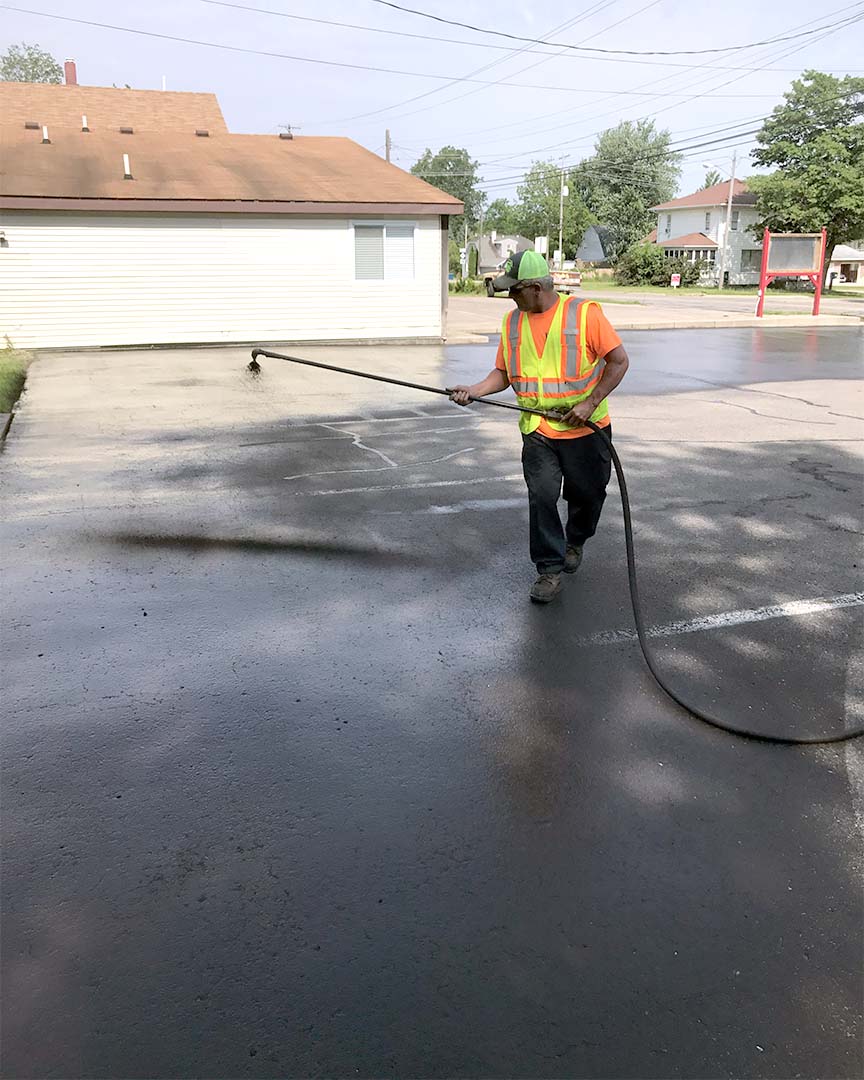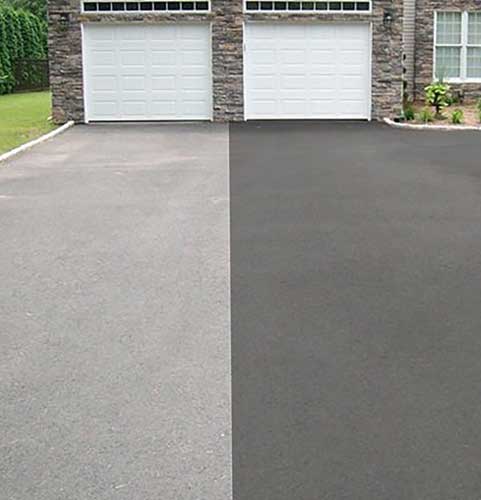Durable Outcomes: Asphalt Spot Repair With Precision Sealing
Durable Outcomes: Asphalt Spot Repair With Precision Sealing
Blog Article
Cold Mix Asphalt Vs. Hot Mix Asphalt: Which Is Right for You?

Structure Differences
Cold mix asphalt is created by emulsifying the asphalt binder with water and an emulsifying agent prior to blending it with accumulation. The hot mix asphalt production process includes heating up the aggregate and asphalt binder separately prior to incorporating them at the asphalt plant.
Furthermore, cold mix asphalt tends to be much less dense and more versatile than hot mix asphalt. This adaptability makes it better fit for locations with higher levels of movement, such as driveways or roadways with rush hour. On the other hand, hot mix asphalt is known for its high sturdiness and resistance to rutting and cracking, making it a recommended option for freeways and high-traffic roadways where durability is important.
Installment Process Variations
The process of mounting cool mix and hot mix asphalt exhibits remarkable variances in their treatments and requirements. In comparison, hot mix asphalt necessitates an extra elaborate installation procedure. Due to the home heating demands, hot mix asphalt installations are commonly carried out by professionals with specific tools, making sure a more long-term and structurally sound result.
Sturdiness and Long Life Elements
When taking into consideration asphalt choices, toughness and durability are important factors to assess for long-term sidewalk efficiency. Hot mix asphalt (HMA) is known for its phenomenal toughness and durability.
In terms of long life, HMA generally exceeds CMA because of its exceptional strength and resistance buildings. HMA pavements have a longer life span, requiring much less regular repair work and maintenance, which can convert to set you back savings over time. In addition, HMA pavements are much more conveniently adjustable to satisfy specific task requirements, further improving their sturdiness.
Cost Factors To Consider
Considering the financial ramifications is a critical facet when evaluating the selection in between warm mix asphalt (HMA) and cool mix asphalt (CMA) for pavement projects. While the first cost of warm mix asphalt is generally greater than that of cool mix asphalt, HMA typically supplies a more economical service in the lengthy run due to its remarkable toughness and long life.
In enhancement to product expenses, it's vital to think about the expenses linked with setup and maintenance when comparing HMA and CMA. HMA generally calls for specific equipment and knowledgeable labor for correct installment, which can affect general task prices. Conversely, CMA is easier to collaborate with and can frequently be used making use of easier techniques, possibly lowering installation expenditures. Eventually, the decision in between HMA moved here and CMA should take into consideration not simply the preliminary price however also the lasting monetary implications to figure out the most economical option for the particular sidewalk job.
Environmental Effect Comparison
Comparison of the environmental effects in between hot mix asphalt (HMA) and chilly mix asphalt (CMA) reveals unique distinctions in sustainability techniques. HMA manufacturing calls for high temperature levels, leading to enhanced power intake and greenhouse gas emissions. The procedure additionally launches unpredictable organic compounds (VOCs) and unsafe air pollutants (HAPs) into the atmosphere. On the other hand, CMA is created and used at reduced temperatures, reducing energy usage and exhausts significantly. The lower production temperatures of CMA result in decreased fuel intake and lower levels of CO2 discharges, making it an extra environmentally friendly alternative.
Moreover, the usage of CMA frequently includes reusing existing asphalt sidewalk, promoting source conservation and decreasing the quantity of waste sent to landfills. By choosing for CMA over HMA, road construction tasks can contribute favorably to environmental conservation efforts.
Verdict
To conclude, the selection between chilly mix asphalt (CMA) and warm mix asphalt (HMA) depends on numerous elements such as make-up, installation process, longevity, longevity, price, and environmental impact. asphalt repair. While CMA offers a economical and fast solution for minor repair services, HMA guarantees remarkable durability and longevity for heavy web traffic locations. Consider these elements meticulously to establish which sort of asphalt is the best option for your paving needs

Considering the financial ramifications is an essential element when reviewing the choice in between warm mix click site asphalt (HMA) and cool mix asphalt (CMA) for sidewalk projects. While the preliminary price of warm mix asphalt is commonly greater than that of chilly mix asphalt, HMA frequently gives an extra economical remedy in the lengthy run due to its exceptional longevity and long life. cold mix asphalt.Comparison of the ecological impacts in between warm mix asphalt (HMA) and chilly mix discover this asphalt (CMA) reveals unique distinctions in sustainability methods.In conclusion, the choice between cold mix asphalt (CMA) and warm mix asphalt (HMA) depends on different aspects such as structure, setup procedure, resilience, durability, price, and ecological effect
Report this page